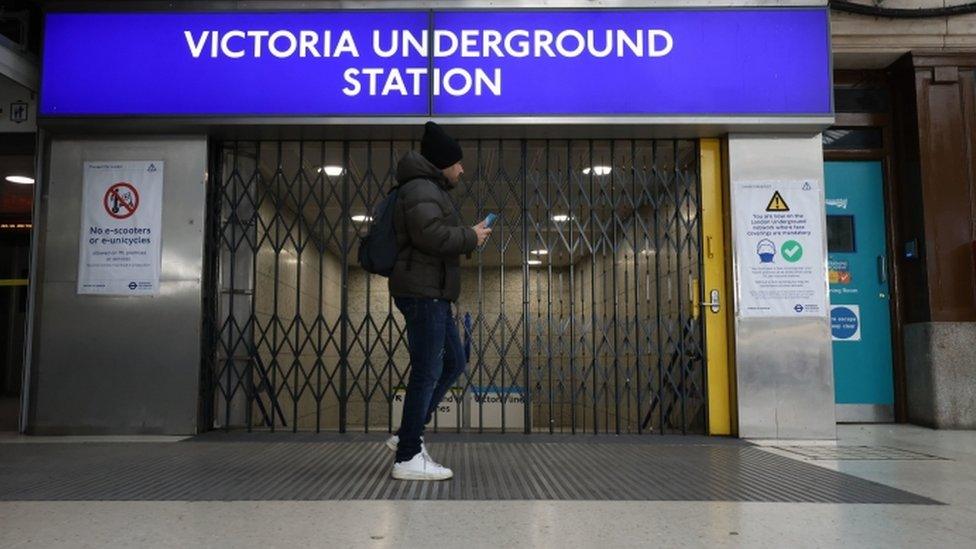New £3.6bn London transport funding deal agreed
- Published
- comments
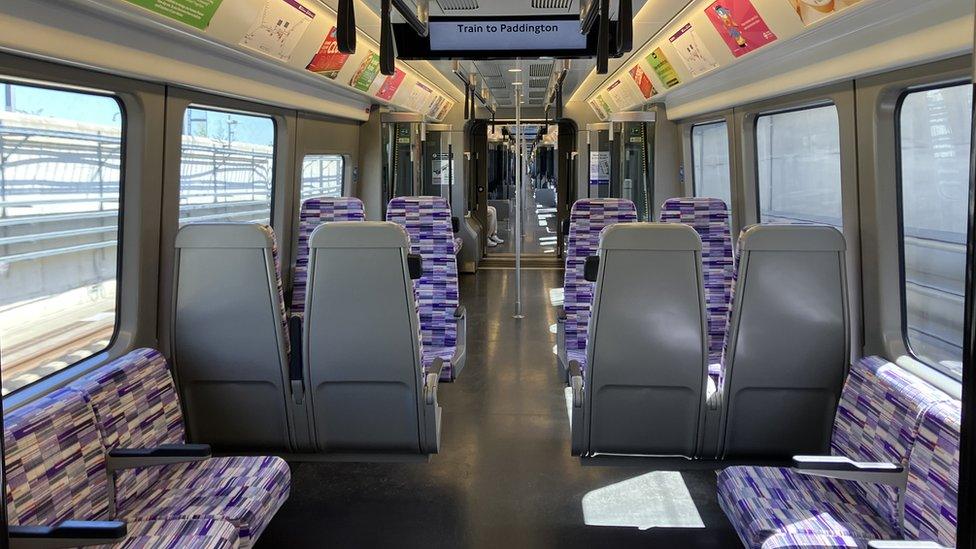
May's opening of the new Elizabeth line has provided a financial boost to TfL
A new £3.6bn government bailout to keep Tube trains, railways, buses and trams running in London has been agreed.
The package includes almost £1.2bn of upfront funding for Transport for London (TfL) to secure the long-term future of the capital's transport network.
It is the sixth bailout for TfL after its revenues plummeted in the pandemic.
The funds will allow Piccadilly line trains to be built as well as upgrades to three Tube lines.
TfL Commissioner Andy Byford described the deal as "hard won" but Mayor of London Sadiq Khan, who is also chair of TfL, branded it "far from ideal".
Mr Khan also warned of increased fares, just two weeks after Londoners were warned of potential Tube and bus fare rises of up to 14% next year.
Transport Secretary Grant Shapps said the deal, which lasts until 31 March 2024, "more than delivers for Londoners".
The Department for Transport (DfT) said it had now provided more than £6bn worth of funding since May 2020.
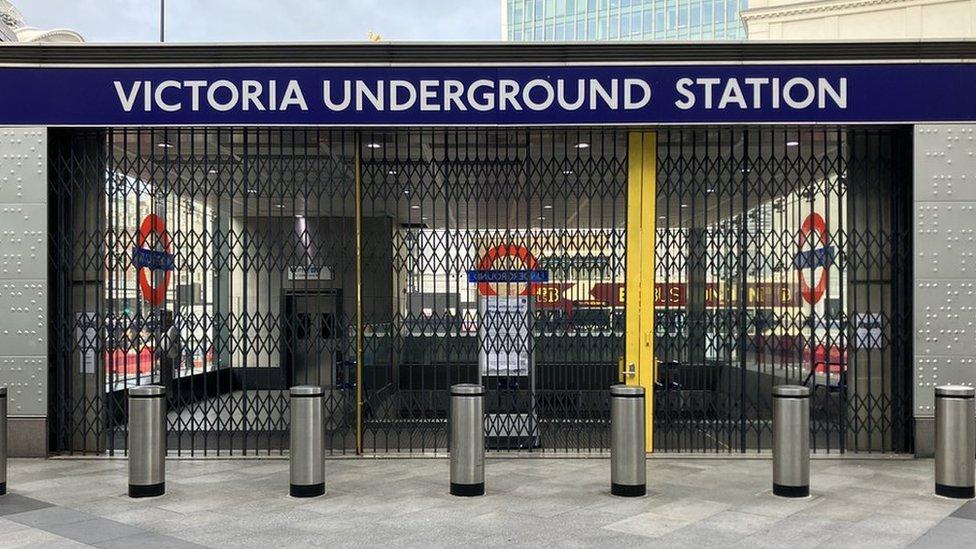
There could be further Tube strikes over TfL pension reforms, the London mayor says
Securing the funding means bus services will now be cut by 4% instead of 18%, the BBC understands, which Mr Khan had warned was a possibility.
Although Tube services will not be reduced a £740m funding gap remains.
The 16-page settlement letter, external includes a commitment to "press forward a joint programme on the implementation of driverless trains on the London Underground".
The department said Mr Khan had also committed to submit proposals to reform pensions by the end of September.
There have already been five Tube strikes over this and other issues in 2022.
Talks between the government and TfL have been continuing for weeks amid repeated rows over funding and the cause of TfL's financial issues.
The previous bailout deal had expired on 3 August. The deals have been repeatedly extended but, earlier this month, Mr Shapps insisted this offer would be the final financial package for TfL.
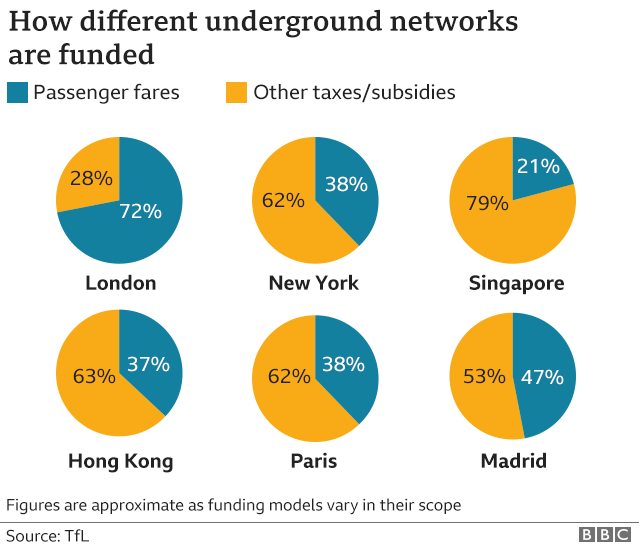
Mr Khan said the latest settlement included terms he "had no choice but to accept in order to get the deal over the line to avoid TfL becoming bankrupt", to save jobs and keep services running.
He said: "The government is still leaving TfL with a significant funding gap, meaning we will likely have to increase fares in the future and still proceed with some cuts to bus services.
"There are also onerous strings attached, such as the government's condition requiring TfL to come up with options for reform of TfL's pension scheme at pace, which could well lead to more industrial action and more disruption for commuters."

Analysis
By Tim Donovan, BBC London Political Editor
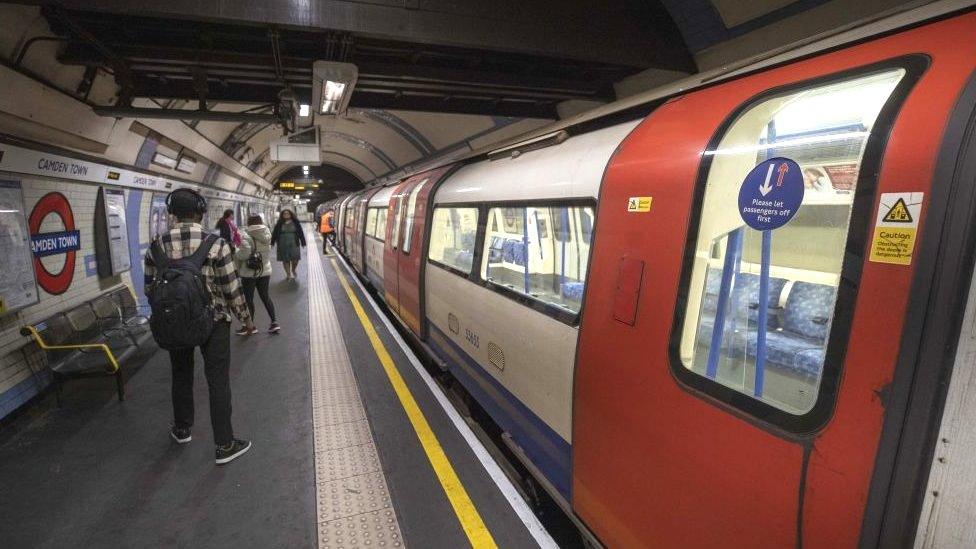
For more than two years London's mayor and the transport secretary have tussled over money - and it hasn't been pretty.
The personal and the political have combined to create an acrimonious climate, which many say can't be good for London, whatever the exact details of this funding settlement finally agreed.
Ill feeling runs deep.
Grant Shapps reflects a wider ministerial view that Sadiq Khan is an essentially tribal Labour figure who rarely wastes a chance to condemn government failures and deflect blame.
For his part, the mayor has become ever vigilant to a "levelling up" agenda, which he sees as punishing the Labour-inclined capital - excluding it from pots of government money going to other parts of the country, and ramping up the rhetoric around its past favoured status.
He insists it makes absolutely no sense economically to take it out on London and hobble the country's powerhouse.

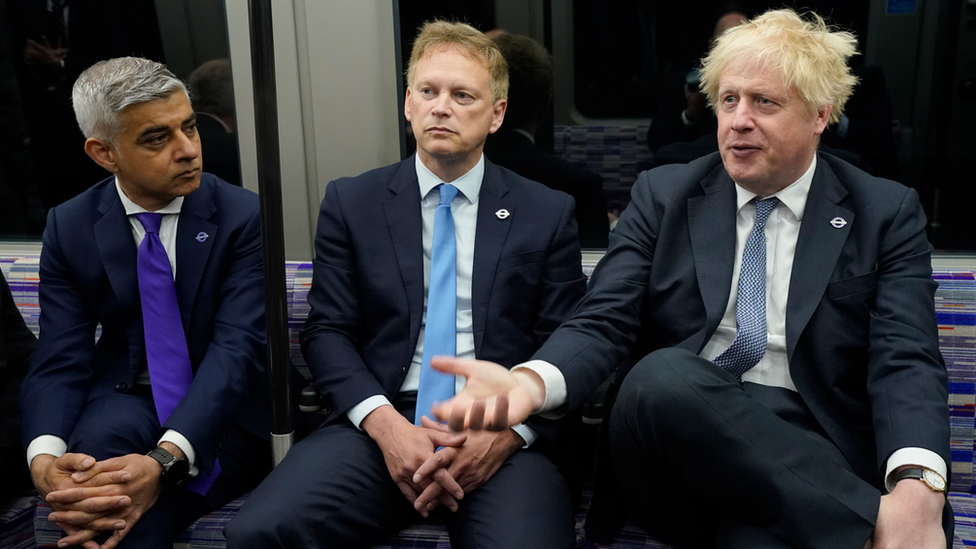
Grant Shapps sits between mayor and TfL chair Sadiq Khan and his mayoral predecessor Boris Johnson
The transport secretary told Mr Khan it was "time to put politics to one side and get on with the job".
Mr Shapps said: "For over two years now we've time and again shown our unwavering commitment to London and the transport network it depends on, but we have to be fair to taxpayers across the entire country.
"This deal more than delivers for Londoners and even matches the mayor's own pre-pandemic spending plans but, for this to work, the mayor must follow through on his promises to get TfL back on a steady financial footing, stop relying on government bailouts and take responsibility for his actions."

Follow BBC London on Facebook, external, Twitter , externaland Instagram, external. Send your story ideas to hellobbclondon@bbc.co.uk, external
- Published16 August 2022
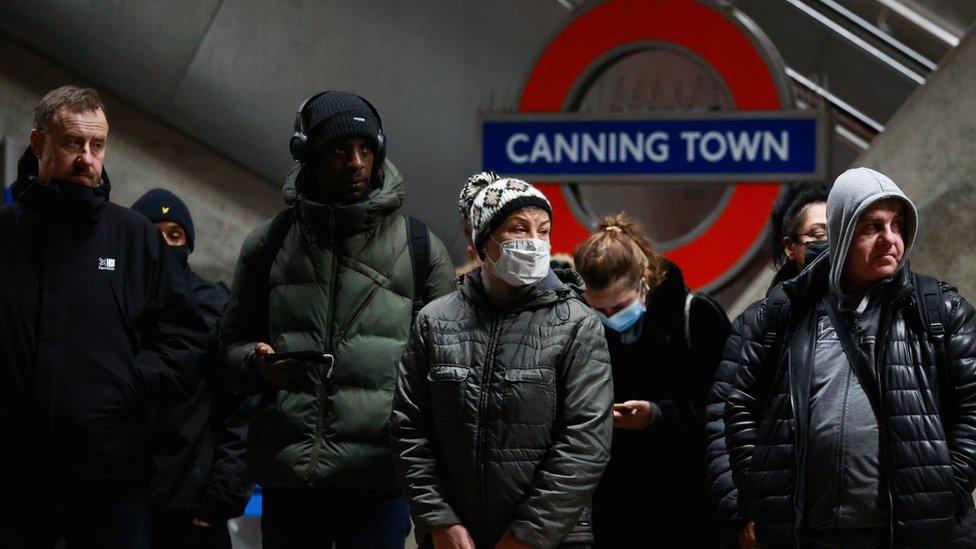
- Published24 June 2022
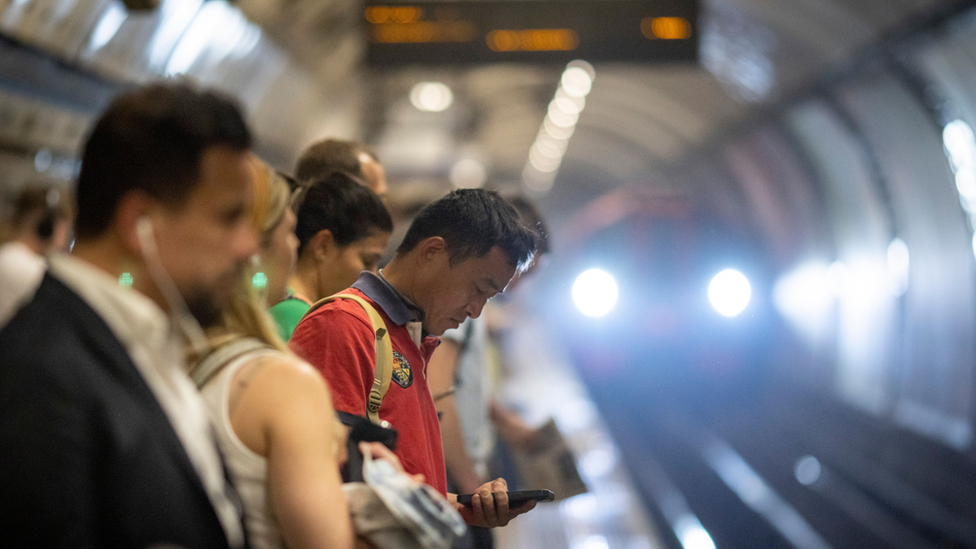
- Published16 June 2022
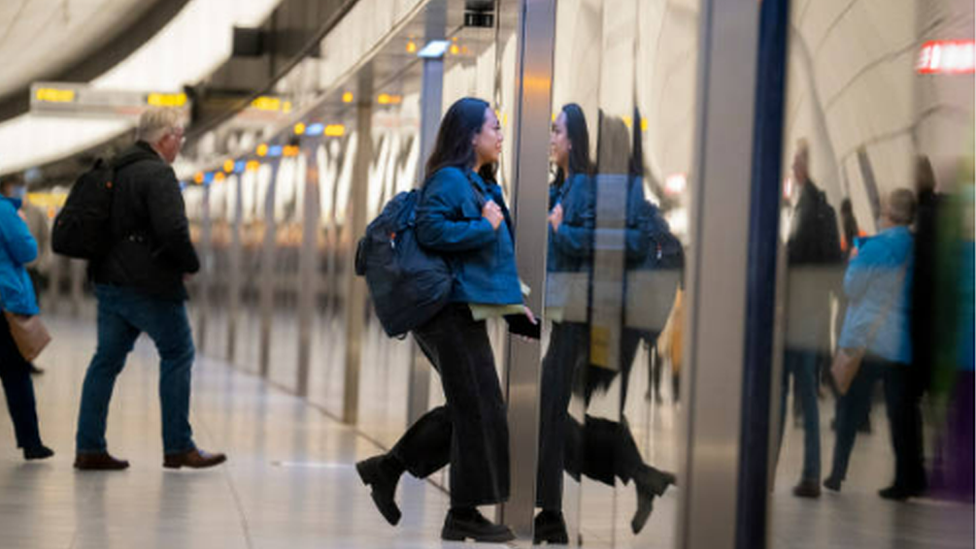
- Published21 March 2022
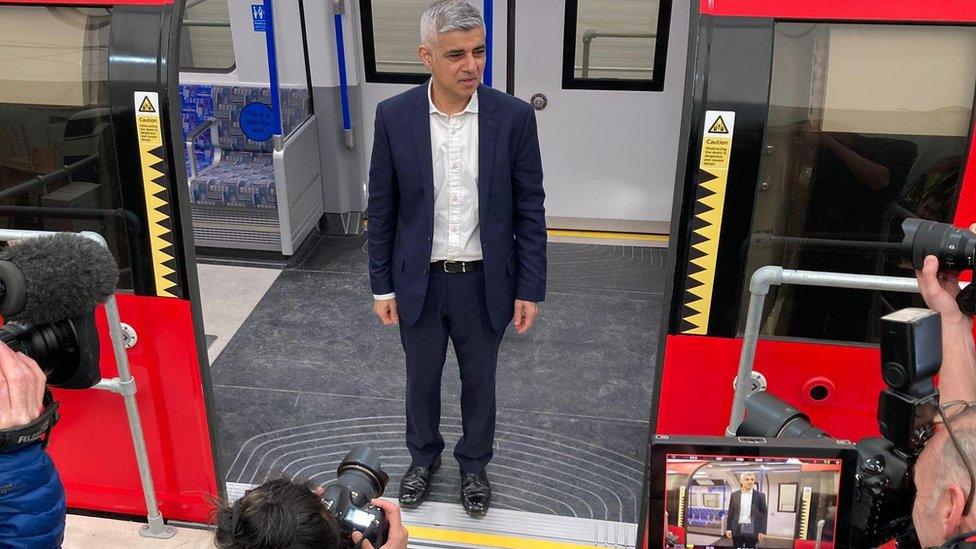
- Published6 April 2022
